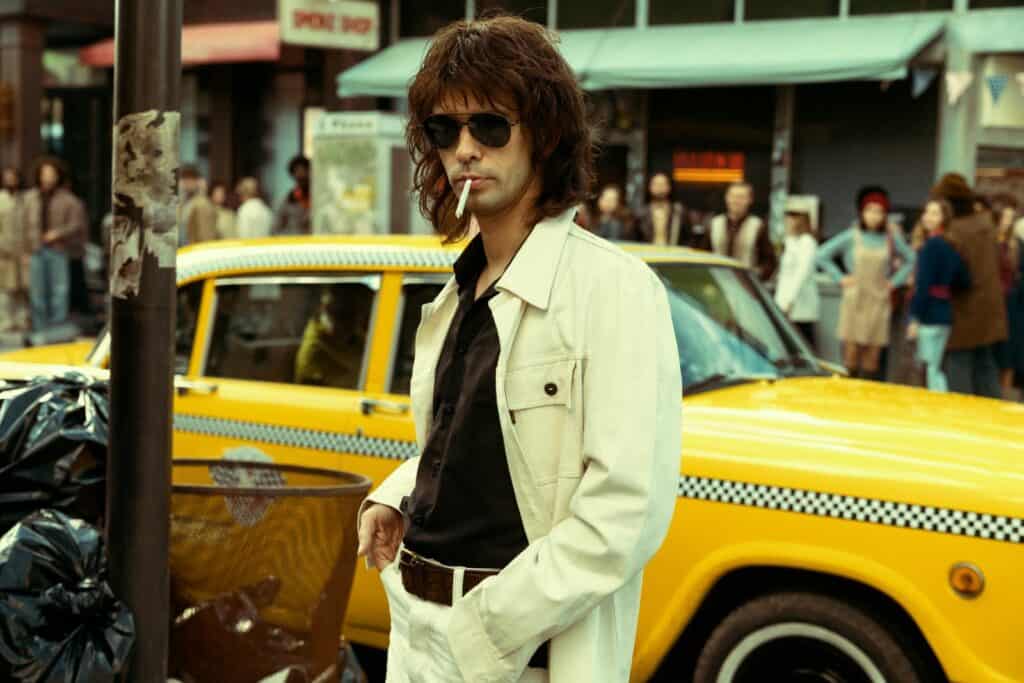Limonov – The Ballad is the latest film by Kirill Serebrennikov and his first in English. The latter is a problem that many arthouse directors have to deal with nowadays: the need to make films in English to get funding. Among the directors who suffered the most, Jessica Hausner is the most obvious example, next to Halina Rejn and Kristoffer Borgli. In other cases, like Yorgos Lanthimos, who always made mainstream films, it doesn’t matter much. In Serebrennikov’s case, there were obvious political reasons as well. Petrov’s Flu was one of the best films of the glorious 2021 edition of the Cannes Film Festival. Would the director be able to maintain his quality in a foreign context?
The film was initially planned as a project for writer-director Pawel Pawlikowski. However, in May 2020, Pawlikowski said he lost interest in the character and abandoned plans to direct the film. He is still credited as co-writer and executive producer. The titular character is the infamous Soviet writer/dissident Eduard Limonov, played by Ben Wishaw. He repeatedly corrects others’ pronunciation of his name. Since he took the name himself (he was actually born Eduard Veniaminovich Savenko), it’s less obnoxious than it sounds. Still, the portrait of this highly controversial character is not all that flattering. Quite a few festival visitors, including festival programmers, decided not to find out and boycott the film based on the topic alone.

Limonov – The Ballad is loosely based on Emmanuel Carrère’s biographical novel from 2011, which I haven’t read. Several critics who have read the book have expressed regret over how much the film deviates from its source novel. The film jumps in time and space, with one of the first sequences showing Limonov’s return from his exile life to Russia during the Perestroika period. Then, it moves with the character to Kharkiv (formerly Kharkov) via Moscow, where he meets Elena (Viktoria Miroshnichenko). They fall in love and later go to New York, where Elena will enjoy a successful model career. This kind of description doesn’t say much about what the film looks and, more importantly, feels like.
Serebrennikov is not working with his usual DOP, Vladislav Opelyants, but Roman Vasyanov is more than capable of taking over the fallen mantle. The production designer, Vladislav Ogay, is still on board. The resources may have been smaller than in the director’s earlier works, but the style from earlier works is occasionally on display here as well. Fans of the director might still feel that something essential is missing and that the film might come off as linear despite all the theatrical quirks.
Limonov – The Ballad Not the Whole Truth
Wishaw plays against type in his portrayal of Limonov, appearing constantly frustrated and resentful towards everyone and everything. Something that would result in several repulsive but also contradictory positions during his lifetime, some of which are merely referred to during the end credits. The actor’s Russian-accented English works in the scenes set outside Russia but is downright cringe in the scenes set in the Soviet Union. On occasion, Limonov feels like a spoiled rock star, obsessed with creating his own legend. There are even similarities with Quentin Dupieux’s depiction of Salvador Dali last year, however absurd that comparison might seem. Other characters largely fade in comparison, even if Viktoria Miroshnichenko’s Elena occasionally shines.
Whatever flaws Limonov -The Ballad might have, Serebrennikov is a director on a much higher level than virtually everyone in this year’s competition, with the possible exception of Miguel Gomes. Apparently, his next film, The Disappearance, is already finished. There are even reports stating that the film was submitted to Cannes, as well. The subject of the film is the notorious Nazi doctor Josef Mengele (played by August Diehl), focusing on his fugitive years. Could it possibly make it to the Venice competition?
